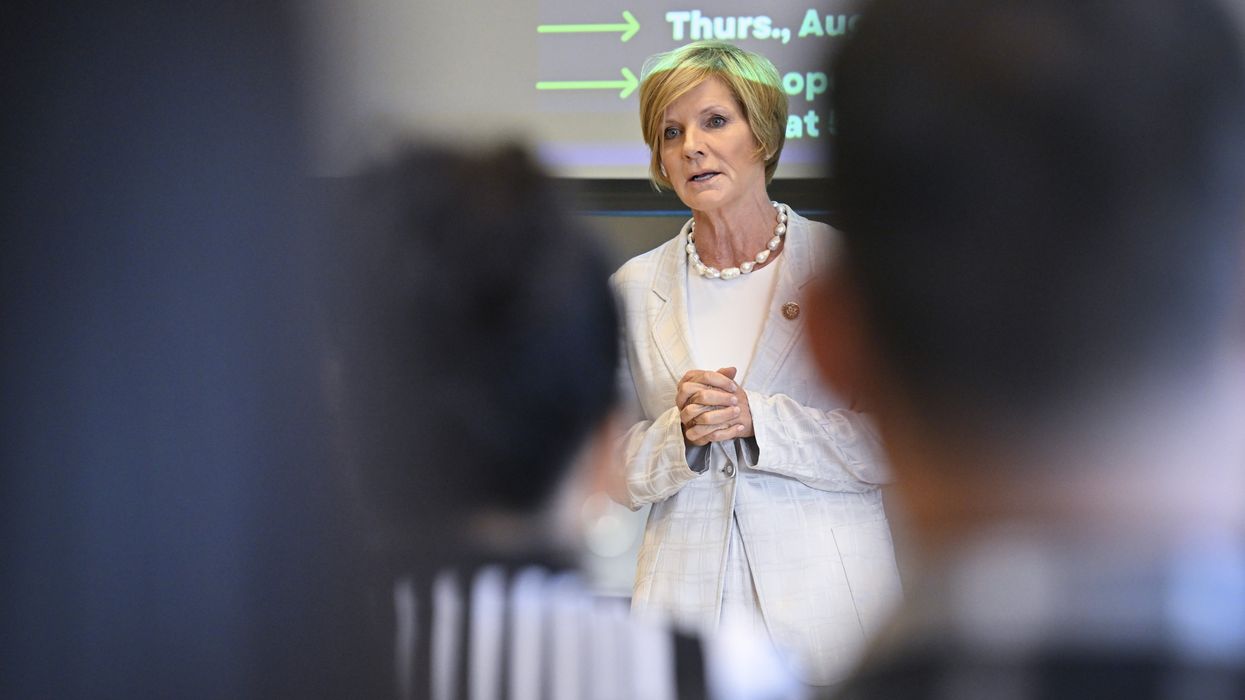Meyers is executive editor of The Fulcrum.
While much of the political discourse revolves around the nation being hopelessly divided, there are a number of politicians who are working across the aisle. To help voters identify such people, the Common Ground Committee measures elected officials and candidates on their bipartisan efforts. The Common Ground Scorecard was recently updated in advance of the 2024 elections — and includes some record numbers.
The scorecard measures individuals across broad categories that include official actions, public statements and promises for future behavior. For the first time, someone achieved a perfect score in the 2024 report. In fact, four people earned 110 out of 110 points: Rep. Don Bacon (R-Neb.), Rep. Don Davis (D-N.C.), Sen. Maggie Hasson (D-Nev.) and Rep. Susie Lee (D-Nev.). Coincidentally, Bacon, Davis and Lee were all recently named finalists for Democracy Awards, given out by the Congressional Management Foundation for outstanding public service on Capitol Hill.
“Hardworking families in southern Nevada care less about political parties and more about common sense solutions. That’s why I’ve worked with Republicans to lower costs, create jobs, support law enforcement and keep Americans safe at home and abroad,” said Lee. “I’m proud to have been named the most bipartisan member of Congress and I will continue working with my Republican colleagues to help Nevada’s families, small businesses, seniors and veterans.”
This year, there was a 53 percent increase in the number of people earning the title of “champion” for reaching the highest tier of scores, jumping from 34 in 2023 to 52.
“Legislation requires cooperation just to get out of committees in Congress and be considered for a vote. That means partisanship gets in the way of finding solutions to the significant issues facing our nation,” said Erik Olsen, co-founder and CEO of Common Ground Committee.
The average score across House members, governors and presidential candidates is 31, up 3 points from the previous update and up 6 points (25 percent) from the scorecard’s launch in 2020.
“This small increase is a sign we are moving in the right direction, but there is still a long way to go,” Olsen said.
Among the ways people earn points are: supporting bipartisan legislation (as measured by the Lugar Center’s Bipartisan Index), demonstrating bipartisan job approval ratings, having public conversations or events with someone from the opposite party, being a members in any of a selection of across-the-aisle congressional caucuses, promoting common ground in public communications (and losing points for derogatory or violent language) and affirming a series of common ground commitments developed by the CGC.
Individuals can earn 10 bonus points for “a bold, exceptional act championing common ground.” This can include leading the way on bipartisan legislation, writing a bipartisan op-ed or winning an award for common ground efforts.
Since April 2023, a number of individuals have made huge jumps in their scores.
Leading the way is Rep. Mike Lawler (R-N.Y.), who increased 83 points to a total of 100. Rep. Eric Sorensen (D-Ill.) saw his score increase 77 points to 84. Nine others earned increases of at least 50 points. Both Lawler and Sorenson increased their scores by doing more bipartisan legislating, affirming the CGC’s “Common Grounder Commitments,” joining a bipartisan caucus, engaging in public events with someone from the other party, writing an op-ed with someone from the other party and speaking publicly about finding common ground.
According to Olsen, more and more members of Congress have engaged with the Common Ground Committee and sought ways to improve their scores.
“We have had a significant increase in the number of members and staff reaching out to us to discuss how to increase their scores and send us information about their bipartisan activities,” he said. “Sometimes, this will impact scores, and sometimes, it will not. But there is a clear interest among certain members in working towards bipartisanship.”
For example, over the past year CGC saw a 39 percent increase in the number of people agreeing to the Common Ground Commitments, which are:
I will identify and set aside personal biases.
I will commit to seek agreement, progress, and solutions.
I will listen first to learn perspectives and experiences.
I will not assume, but seek to understand motives and intentions.
I will seek outcomes all can live with but not compromise principles.
I will accept that good people may disagree.
I will use and accept facts.
I will stay respectful.
I will resist demonizing.
I will de-escalate hostile situations.
The scorecard also measures how the presidential candidates perform. President Joe Biden’s score has held steady at 30 since January 2023, when it fell from a personal high of 45. His score is based on positive talk about finding common ground and winning an award for civility in public life from Allegheny College. Donald Trump’s score has never budged from the lowest end of the scale: negative 20 points, based on his insults and crude descriptions of his political opponents. Neither Biden nor Trump received any points — positive or negative — in other categories.
In addition to Trump, nine others were given negative scores, including Rep. Paul Gosar (R-Ariz.), Rep. Marjorie Taylor Greene (R-Ga.) and Rep. Federica Wilson (D-Fla.), who all matched the former president’s negative 20 score.




















Trump & Hegseth gave Mark Kelly a huge 2028 gift